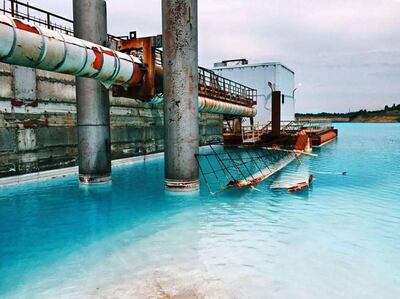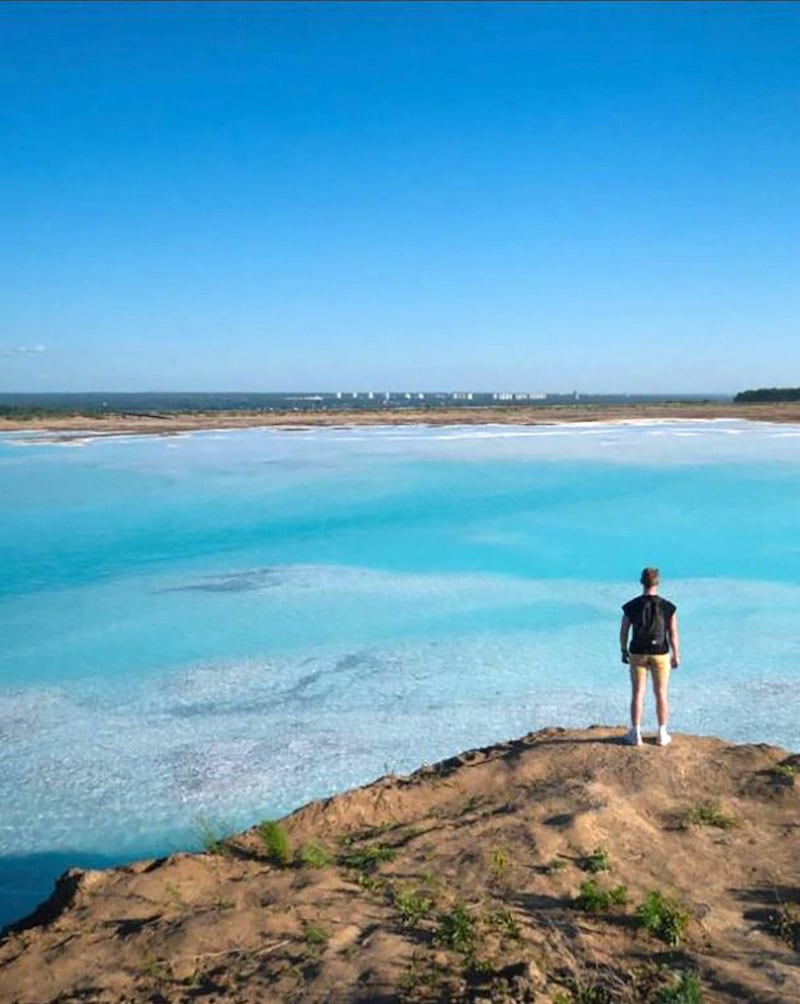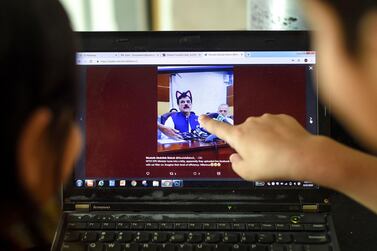Russia’s budding Instagram influencers are descending on a chemically phosphorescent lake in Siberia they have dubbed the “Russian Maldives.”
Unlike the crystal clear waters lapping beaches on the Mediterranean or the real south Asian atoll of the Maldives, the azure phenomenon just outside the Siberian town of Novosibirsk, nearly 3,000 kilometres east of Moscow, is not naturally occurring. The almost neon hue of the water is a testament not to a natural purity but to it being an ash dump from a nearby factory.
The electric-blue effect produced is the result of by-product dumped by a local coal plant, which has warned that even though the water might appear inviting, it can pose a risk to anyone who comes in contact, the company was quoted as saying.

The Siberian Generating Company (SGK) which operates the facility told a local news outlet in June that apart from the fact there are no lifeguards at the site, contact with the water could cause skin irritation due to its chemical content.
“Walking in the ash dump is like walking on a military training ground: dangerous and undesired,” the company told the NGS.ru news website.
Despite reports that local authorities have begun trying to limit access to the lake, which is a short drive for Novosibirsk's population of around 1.5 million, it has become something of a pilgrimage destination for the remote region’s social media aficionados.
One Instagram account dubbed “Novosibirsk Maldives” that is solely dedicated to reposting snapshots taken from SGK’s ash dump has been gaining traction. It has reposted hundreds of pictures showing visitors holding yoga poses, crouching by the blue water or posing by the radiant lake and relaxing on inflatables.
This influx of visitors has led the company to implore shutter-happy locals to exact caution when taking pictures. “We beg you not to fall into the ash dump in the pursuit of selfies! That’s the biggest danger,” SGK wrote in all caps on VK, the Russian equivalent of Facebook.
In response to comments by some social media users likening it to visiting the Chernobyl nuclear power station in Ukraine, which exploded in 1986 when the area was part of the Soviet Union, the company has said that the lake is not radioactive.
Despite the tongue in cheek tone with which locals are taking with the ash dump, recent polls suggest that Russians as a whole are becoming increasingly concerned by ecological issues.
A poll produced by the Higher School of Economics in Moscow found that 94 per cent of Russians believe environmental pollution is a pressing concern. Since 2017, Moscow authorities have struggled to respond to a series of protests against overflowing Soviet era landfills.







